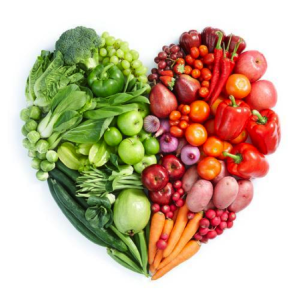 Did you know that how you feel can be influenced by your gastrointestional tract?
Did you know that how you feel can be influenced by your gastrointestional tract?
A few weeks ago we wrote about how important the gastrointestional tract and microbiome are to overall well-being.
Emerging science is also beginning to understand the deep connection between the gut and the brain. The micro-organisms that live in our gut secrete numerous chemicals and those chemicals are the same substances used by our neurons to communicate and regulate mood, like dopamine, serotonin and gamma-aminobutyric acid (GABA).
The small intestine houses around a hundred million neurons and can act as a second brain. The “brain” in our gut is responsible for partially producing and storing chemical neurotransmitters like dopamine and serotonin. These substances regulate mood and our emotional and psychological well-being. In fact, 90 percent of serotonin is produced and stored in the intestinal walls. Serotonin in the gut helps with sensory transmission and peristaltic movements. In our bodies, serotonin is essential for regulating mood, appetite, sleep and cognitive functions like memory retention.
Food for Mood So what are the foods that help enhance your mood? Well, building a healthy microbiome either through probiotic foods or probiotic supplements is a great way to start. But certain foods themselves have chemical properties that also enhances ones overall happiness.
1. Dark Chocolate …And not just because it tastes good! Chocolate has chemical called anandamide, a neurotransmitter produced in the brain that temporarily blocks feelings of pain and depression. It also contains other chemicals that prolongs the good feeling properties of anandamide. When choosing chocolate, look for organic brands with at least 65% chocolate- the darker the better!
2. Protein A high-quality source of protein, like organic eggs, grass fed meats and nuts, help to keep your blood sugar levels steady which enhances energy and mood.
A high-quality source of protein, like organic eggs, grass fed meats and nuts, help to keep your blood sugar levels steady which enhances energy and mood.
3. Bananas Bananas contain dopamine, a natural “reward” chemical that boosts your mood. They’re rich in B vitamins, which help to soothe your nervous system essential for relaxation. Bananas are also considered a prebiotic food.
4. Turmeric Curcumin, which is the pigment that gives the spice turmeric its yellow-orange color, is active component responsible for many of its medicinal effects. Along with being anti-inflammatory, curcumin has neuroprotective properties and may enhance mood.
5. Purple Berries Anthocyanins are the pigments that give berries like blueberries and blackberries their deep color. These antioxidants help your brain produce of dopamine.
6. Animal-Based Omega-3 Fats Found in salmon or supplement form, like krill oil, the omega-3 fats EPA and DHA play a role in your emotional well-being by reducing inflammation and increasing brain plasticity. Along with increasing memory retention, neuroplasticity allows your brain to adapt to ones environment. That means you’re able to do things with clarity and skillfulness.
What foods should you limit or eat in moderation?
Sugar can lead to fluctuations in blood sugar, which can bring on mood swings, but its role in affecting your mood negatively actually goes much deeper than that. Sugar consumption triggers a cascade of chemical reactions in your body that promote chronic inflammation. In the long term, inflammation disrupts the normal functioning of your immune system, which is linked to a greater risk of depression.
Processed foods also effect a person’s mood. Many contain trans fats, artificial colors, monosodium glutamate (MSG), artificial sweeteners and other synthetic ingredients linked to irritability and poor mood. In some individuals, coffee and caffeine can also effect your mood by overstimulating the adrenals glands and taxing the kidneys. When you consume any caffeine, it’s always important to replenish with water!
What good mood foods will you add to your diet this week?
